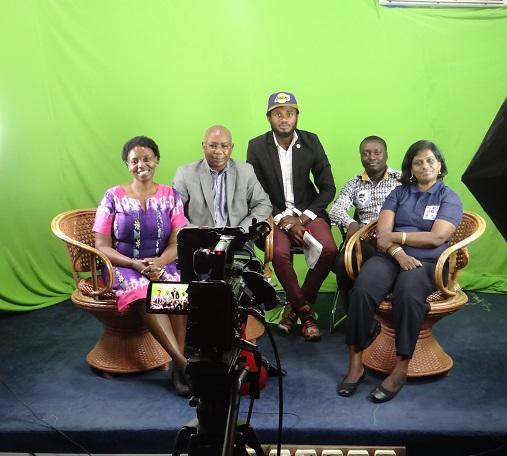The “Partnerships with African Higher Education” program, launched by Campus France, is rapidly gaining momentum as a strategic initiative aimed at strengthening academic ties between France and African institutions. Designed to foster collaboration, research exchange, and student mobility, the program underscores France’s commitment to supporting the development of higher education across the African continent. As global educational partnerships grow increasingly vital in today‚Äôs interconnected world, this initiative highlights new opportunities for innovation, cultural exchange, and capacity building in Africa‚Äôs universities.
Overview of the Partnerships with African Higher Education Program and Its Strategic Goals
The Partnerships with African Higher Education program spearheaded by Campus France represents a significant stride in nurturing collaborative ties between French and African universities. It aims to bolster capacity building, enhance research capabilities, and promote academic exchange across borders. Central to this initiative is the establishment of structured alliances that foster innovation and knowledge sharing, enabling institutions to jointly address pressing development challenges. These collaborative frameworks prioritize sustainable growth by aligning educational outcomes with regional economic needs, thereby preparing graduates to thrive in dynamic global markets.
Strategically, the program is designed around several key goals:
- Expand mobility: Facilitate student, faculty, and researcher exchanges to encourage cross-cultural learning and professional development.
- Strengthen curricula: Develop joint academic programs that integrate global best practices with localized relevance.
- Promote research partnerships: Support collaborative projects that advance scientific inquiry and technological innovation.
- Enhance institutional capacity: Upgrade infrastructure and administrative frameworks to support quality education and research.
| Strategic Goal | Focus Area | Expected Outcome |
|---|---|---|
| Student Mobility | Exchange Programs | Increased intercultural competence |
| Curriculum Development | Joint Degrees | Enhanced employability |
| Research Cooperation | Joint Projects | Innovative solutions to regional challenges |
| Capacity Building | Infrastructure Upgrades | Improved academic quality |
Key Success Stories and Impact on Academic Collaboration Between France and Africa
Since its inception, the program has facilitated over 150 collaborative projects spanning across various disciplines such as environmental science, engineering, and social development. Notably, the joint research initiative between the University of Dakar and Sorbonne University on renewable energy alternatives has been recognized for its groundbreaking contributions to sustainable development in West Africa. This project has not only led to increased publication output but has also paved the way for the creation of a regional innovation hub dedicated to clean energy technologies.
The program’s impact extends beyond research, significantly boosting student and faculty exchanges. Through targeted scholarships and mobility grants, more than 2,000 African students have pursued advanced degrees in France, enriching both academic communities. The table below highlights key metrics that illustrate the scale and diversity of these exchanges:
| Category | Number | Focus Area |
|---|---|---|
| Collaborative Projects | 150+ | Multidisciplinary |
| African Students Sponsored | 2,000+ | Higher Education |
| Joint Publications | 500+ | Scientific & Technical |
| Faculty Exchanges | 300+ | Research & Teaching |
Challenges Faced in Implementation and How Stakeholders Are Addressing Them
Implementing the “Partnerships with African Higher Education” program has encountered several notable obstacles, including logistical challenges, varying academic standards, and limited technological infrastructure. Differences in curricular frameworks between African universities and French institutions often result in complex alignment efforts, hindering smooth student and faculty exchanges. Additionally, inconsistent internet connectivity and lack of access to digital resources in some partner universities impede the deployment of remote learning modules and virtual collaboration, essential components in today’s education landscape.
Stakeholders are proactively addressing these issues through a series of strategic interventions aimed at fostering resilience and adaptability:
- Curriculum Harmonization: Joint academic committees have been established to design compatible syllabi and credit transfer systems.
- Infrastructure Investment: Collaborative funding initiatives support technological upgrades and campus connectivity boosts.
- Capacity Building: Training workshops enhance digital literacy for staff and students to maximize technology use.
- Cultural Exchange Programs: Initiatives promote mutual understanding and smooth integration for mobility participants.
| Challenge | Response Strategy | Key Stakeholders |
|---|---|---|
| Academic Misalignment | Curriculum committees | Universities, Educators |
| Technological Gaps | Infrastructure funding | Government, donors |
| Digital Literacy | Training programs | Campus staff, NGOs |
| Cultural Barriers | Exchange initiatives | Students, faculty |
Recommendations for Enhancing Program Reach and Sustaining Long-Term Academic Ties
To truly broaden the impact and ensure the sustainability of academic collaborations between French and African institutions, it is vital to prioritize localized engagement strategies. This includes actively involving regional educational leaders and leveraging existing networks to amplify outreach efforts. Enhancing digital platforms for virtual exchange and providing tailored support to foster long-term partnerships will also serve as crucial catalysts. Developing multilingual promotional materials and organizing joint webinars can further ignite interest and boost accessibility across diverse African academic communities.
Moreover, establishing a robust framework for continuous assessment and feedback will help maintain program relevance and adaptability. This approach could be encapsulated in a simple yet effective monitoring table:
| Action Point | Objective | Timeline | Stakeholders |
|---|---|---|---|
| Regional Workshops | Enhance local engagement | Quarterly | Campus France, Local Universities |
| Virtual Collaboration Platform | Facilitate continuous interaction | Ongoing | Program Participants |
| Feedback Surveys | Monitor program impact | Bi-annually | Partner Institutions |
In Conclusion
In conclusion, the “Partnerships with African Higher Education” program by Campus France represents a significant step forward in fostering academic collaboration between France and African nations. By facilitating student exchanges, joint research initiatives, and institutional partnerships, the program not only enhances educational quality but also strengthens cultural and intellectual ties across continents. As the global landscape of higher education continues to evolve, such initiatives underscore the importance of international cooperation in addressing shared challenges and promoting sustainable development. Moving forward, the success of this program will likely inspire further efforts to deepen educational partnerships and support the growth of higher education in Africa.




